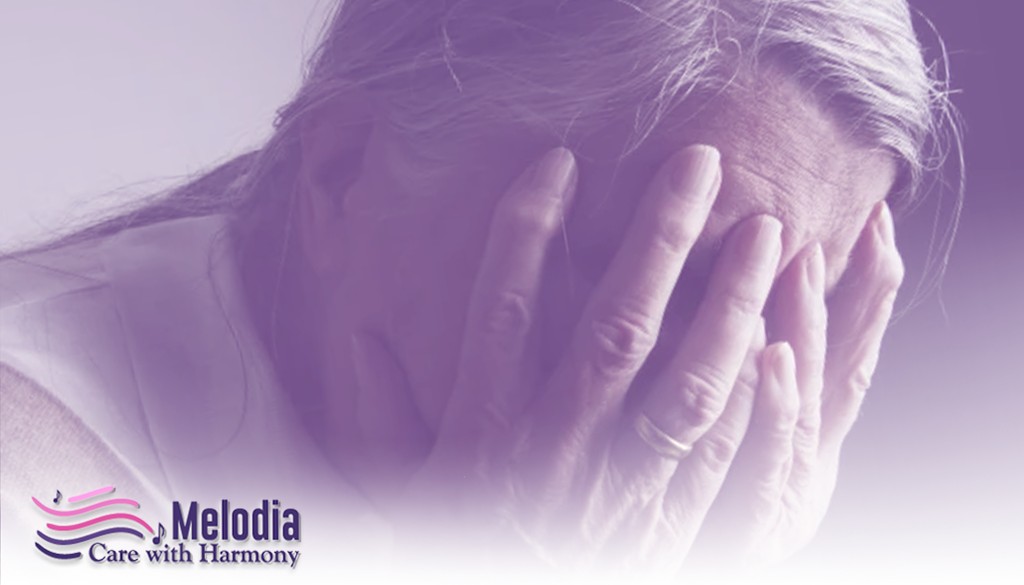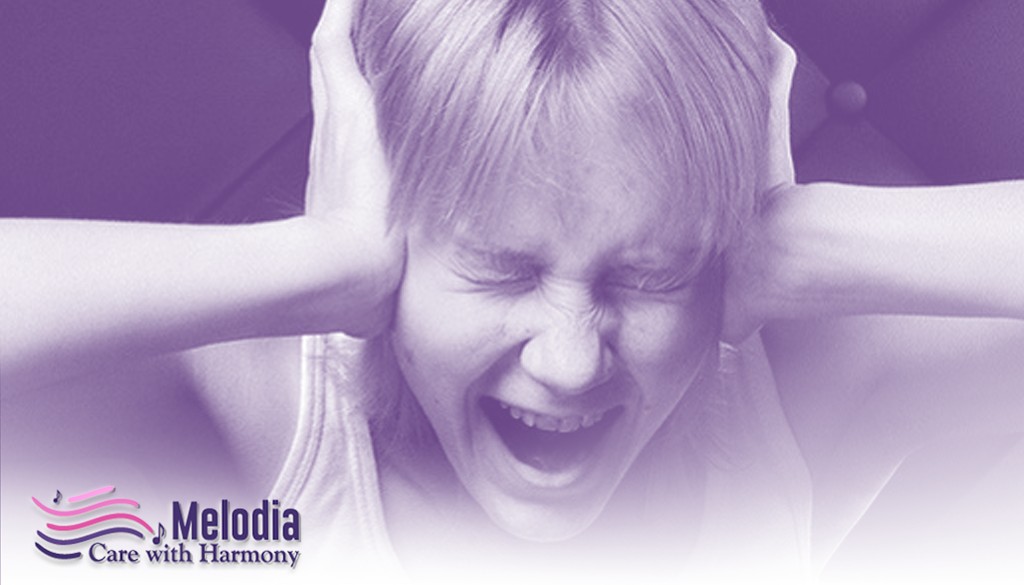Schizophrenia – Psychiatric Disorder

Schizophrenia and dementia are two different conditions, yet they sometimes touch and overlap on a cognitive and organic level. Schizophrenia is a psychotic illness and chronic disorder characterized by hallucinations, delusions, abnormal verbal expression of thought, decreased social interactions, reduced motivation and cognitive difficulties. It generally manifests in people between the late teens and early 30s. At the same time, schizophrenia is associated with an increased risk of progressive dementia (dementia as “neurocognitive disorder” It is a broad term that encompasses a wide range of conditions caused by changes in the brain) later in life. The risk of developing progressive dementia before age 65 was higher for people with schizophrenia than those without schizophrenia. At the age of 80, people with schizophrenia continued to have a higher risk of dementia. These indicate that people with schizophrenia were at increased risk of not only developing dementia but also developing it at a younger age.
Schizophrenia involves psychosis, a mental illness in which a person cannot distinguish between the real and the imagined. Sometimes people with psychotic disorders lose touch with reality. Their behavior can be bizarre and even shocking. The world can seem like a jumble of confusing thoughts, sights and sounds. A sudden change in personality and behavior, occurs when people lose contact with reality.
The long-term course of this disorder varies. With the help of proper medication and social support, some people can live independently, work and enjoy friends and hobbies. However, the symptoms are difficult to control and interfere with most aspects of their lives, often leading to disability and premature death. Additionally, it is not uncommon for people with schizophrenia to use illicit drugs and alcohol and chronic abuse of alcohol or illicit drugs adversely affects their long-term outcomes. However, unlike dementia, there are medications to treat schizophrenia to significantly reduce symptoms.
Schizophrenia – Risk of Dementia

Dementia occurs around age 65 or later. The destruction of brain cells by the disease causes progressive problems with memory and other cognitive functions, such as spatial orientation, reasoning, language and abstract thinking. People with dementia experience many physical and psychological difficulties and often become anxious, agitated, aggressive and sometimes psychotic. Psychiatric challenges caused by dementia can be treated and medications can slow down the disease process, but only for months rather than years. This lifelong disease cannot be cured, but it can be controlled with proper treatment.
New research shows that every disease affects the same area of the brain, even though dementia and schizophrenia are completely different diseases. People with schizophrenia are at increased risk for several medical conditions, including obesity, diabetes, hyperlipidemia, and cardiovascular disease. All of these medical conditions are associated with an increased risk of dementia.
Common symptoms of dementia include:
- Memory lapses (forgetting the name of a loved one, for example)
- A diminishing attention span
- Difficulty communicating (using unusual words, for example, to refer to familiar objects)
Difference Between Schizophrenia And Dementia

In the past, the word “dementia” was used for a wide range of symptoms, almost for any confused mental state. Only recently has the concept of “dementia” been narrowed down and used almost exclusively for diseases of the elderly that, initially at least, primarily affect memory. Now, when people use the word ‘dementia,’ it is almost synonymous with Alzheimer’s disease, so much so that many people don’t even use the word ‘dementia’; they just say ‘Alzheimer’s,’ many don’t even know that there are many different dementias of old age, Alzheimer’s disease being just one of many. So when “dementia” had a comprehensive meaning, what we now call schizophrenia, it was called “dementia precoz”, “precoz” meaning early or young. I used to think it looked just like ‘youth dementia,’ and that’s literally what the term means. ‘dementia’ had a comprehensive meaning for almost any altered state of the illness in which patients lose connections with other brain cells and die. The spaces (ventricles) in the brain increase in size as brain tissue is lost. With dementia, the hippocampus is one of the most affected areas of the brain. Schizophrenia is due to small growth errors in the fetal brain that do not become apparent until the brain “prunes” itself in adulthood. Pruning is a natural process and is supposed to happen and it is a kind of fine-tuning of the brain. But in schizophrenia, much earlier fetal brain growth errors seem to derail the pruning process. The pruning process removed a surprising number of brain cells. Symptoms start shortly after pruning – 3 to 6 weeks. This is because now that brain cells are missing, the brain tries to “manufacture” the missing signals that those cells would have produced (that is basically what hallucinations are, the brain’s effort to “repair” what we hear or see). With schizophrenia, that wave of brain cell loss seems to be the end of brain cell loss to all but an unfortunate few. So, we can say that most dementias are “progressive” and, over time, much more brain tissue will be lost, sometimes in large waves (as in vascular dementia). The person will get worse and worse, in other words. Dementia will end when the person loses the ability to breathe, swallow and perform the most basic functions. Schizophrenia, in general, is not progressive. As annoying as the medication is, it helps prevent further loss of brain cells.
Relationship Dementia And Schizophrenia

There are many similarities between the two, as well as some key differences. Mental illness can exhibit the same symptoms as dementia and vice versa. It is common for mental illnesses, particularly depression, to occur in the early stages of dementia illness. But accurate diagnosis and treatment are known to improve cognitive function. It is quite challenging to live with dementia but the symptoms are exacerbated in conjunction with other mental disorders such as anxiety, depression and psychotic conditions. Depression is often mixed with the belief that it is simply the reaction of an older adult and awareness of progressive decline. Anxiety can include anything from general nervousness and fear of leaving the house to agitation from routine changes and feelings of suspicion or paranoia. Stress can also be psychologically and physically related to dementia.
The research found that the brain regions that developed last were also the first to deteriorate with advancing age. These areas seem to be more susceptible to schizophrenia and dementia than other parts of the brain, although the two diseases have different origins and appear at almost opposite and completely different moments in life. Now, most research confirms that the same brain regions are affected in dementia’s disease and schizophrenia.
Because of the effects of dementia on the brain, you might think that dementia is a mental illness. However, the significant difference between dementia and mental illness must be considered in order to make an accurate diagnosis. Yes, dementia affects mental health but it is not a mental illness. Instead, it is a brain disorder that can cause memory loss and communication difficulties, it is effortless to misdiagnose mental illness in older people, as the symptoms tend to be very similar to dementia, such as confusion and erratic behavior (Schizophrenia). It is important to have a clear view of the symptoms of dementia and the Schizophrenia symptoms of mental illness.
Symptoms Of Dementia

It causes the brain cells responsible for controlling memory to die. This irreversible condition occurs in severe and moderate stages and the main symptoms of dementia include:
• Difficulty communicating
• Increased memory problems
• General confusion
• Personality and emotional changes
Early symptoms of Schizophrenia
The condition usually shows its first signs in men in their teens or early 20s. However, signs in women are visible in their 20s and 30s. The period when symptoms begin and before full psychosis is called the prodromal period. It can be challenging to detect because there is usually no specific trigger. You may only notice subtle changes in behavior, especially in teens. This includes:
- A change in grades
- Social retreat
- Difficult to focus
- Temperament flares
- Difficulty to sleep
Common mental illnesses in the elderly
Some of the common mental illnesses include:
- Depression: this is the most common mental disorder in older people. Social isolation plays an essential role in emotional well-being, so when an older person is left alone for long periods away from their loved ones, depression can quickly appear. Depression is also a symptom of dementia, which is where things get complicated.
- Late-onset bipolar: can be challenging to diagnose in the later stages due to its similarities to dementia symptoms, such as manic behavior, agitation and delusions.
- Late-onset schizophrenia: manifests in adults after the age of 45 and has symptoms similar to dementia, such as hallucinations and paranoia.
Case Study – Early-Stage Schizophrenia Leads To Dementia

A 69-year-old was diagnosed with dementia. The patient had experienced short-term memory changes for five years. He said He had gotten lost while driving on familiar roads. His family is worried about his excitement/anger, paranoia and indifference. The excitement plot is directed at his wife, grandson and other drivers and is exaggerated compared to the related anger triggers. Appetite and sleep were poor. However, his sympathetic/empathetic nature was preserved. The patient also had sporadic bouts of euphoria, dancing incessantly while shopping for groceries, for example. While sadness had been pervasive for the previous five years, episodes of paranoid delusions were not related to episodes of euphoria. There was no inappropriate uninhibited behavior at any time. There was also no obsession, more than a tendency to hoard things.
About Schizoaffective Disorder
A diagnosis of schizoaffective that leads to dementia disorder requires meeting at least two of these main criteria for schizophrenia:
- Hallucinations
- Disorganized speech
- Extremely disorganized or catatonic behavior
- Negative symptoms (e.g., flat expressions, anhedonia, lack of motivation/withdrawal and other experiences that are “taken away” from the person)
- The patient met three of these clinical criteria: paranoid delusions, catatonic behavior and negative symptoms.
In addition, it met all of the following criteria to distinguish schizoaffective disorder: A significant mood episode (major depression or mania) that lasts for an uninterrupted period of time. Delusions or hallucinations for two or more consecutive weeks without mood symptoms at some point during the life of the illness.
Therefore, the results show that it is more evident. The risk of developing progressive dementia before age 65 was higher for people with schizophrenia than those without schizophrenia. At the age of 80, people with schizophrenia continued to have an increased risk of dementia. Therefore, patients with schizophrenia not only have an increased risk of dementia, but also have an increased risk of dementia when they are young.
You can reach Melodia Care at any time of day or night by contacting us through our 24/7 online customer support chat or by calling 1-888 635-6347 (MELODI-7).










